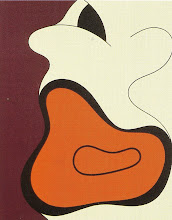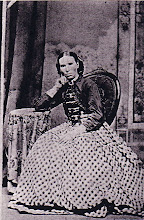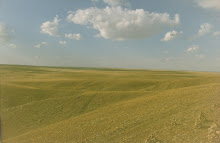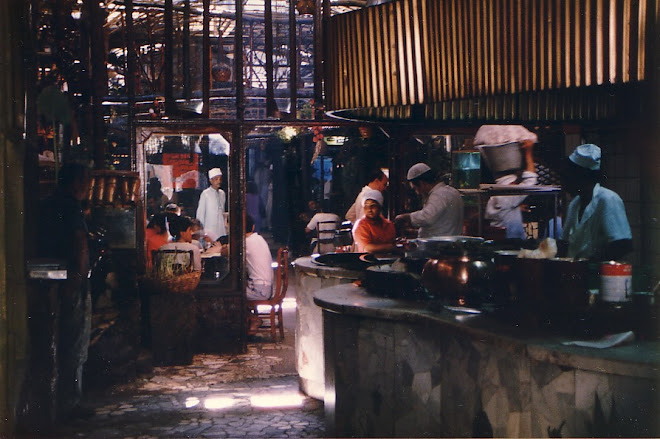You don't imagine in your travels that you'll see a living animist tradition. With its practices in tact and still being conducted.
A couple of years back, I was traveling round the Philippines.
I took a bus north from Manila to Bontoc. From there, I caught a jeepney to Banaue on the edge of the world-famous rice terraces ...

... and then rode a motor tricycle ...

... to a point where I walked over the mountains on a dirt track ...

... and down into a village called Batad:










On the outskirts of this tiny village, I came across this old anito - a statue used as the focus for offerings to the spirits of the forest at the time of the rice harvest.
Returning to Australia, Filipinos from Visayan island of Samar told me of similar practices in that region of the country. And they are probably extant throughout Micronesia.
Food and other offerings are usually set out on a nearby three-tiered square wooden platform, each tier with offerings for a different type of spirit.
The offerings would include various foodstuffs (fish, meat, bananas), and the first rice of the harvest. These foodstuffs could be cooked – but this must not involve salt. There are often other kinds of offerings, such as wine and cigars.
To begin, incense is lit and blown in the direction of each of the four major points of the compass – north, south, east and west - to attract the spirits of the forest.
The farmer would then intone:
O spirits of the forest - spirit of the east, spirit of the west, spirit of the north and spirit of the south
Come here and eat
We have prepared these offerings in good faith and as a sign of respect. They are clean and there’s plenty for you
Thank you for looking after the crop and keeping away danger
Thank you for giving us a bountiful crop
This is my family so when you see them don’t harm them. This is my son, this is my wife … .
If they step on you or bump into you, please forgive them
Excuse me, I’m just passing through
And when traveling through the forest:I guess, living in an industrial urban environment, I am more than a little intrigued by the otherness of such long-gone cultural and agriculture practices - rooted as they are in the life of the land.


![C18 Bronze Buddha [Southern China]](https://blogger.googleusercontent.com/img/b/R29vZ2xl/AVvXsEioLkgVKuhDoIHQgM1X6Oe2hGn75yqaj4OJXPmNpumXmQPKxB22S57YS5DVrl1P7zl7BS6EFpAtaNZPze7gzVCRiQI54bwdHhVa4fGr7NOChZwTZoo92gUen6tC5U8gWIy_pv92U0FB38M/s1600/Buddha+%255BBronze%252C+C18%252C+China%255D+1.jpg)













+1998+Cropped.jpg)











Nick, this is so incredible. Why the village of Batak? Wit.
ReplyDeleteThe terraced mountainsides make me marvel how advanced primitive man can be without technology.
ReplyDeleteAlan down in FLorida
hey wit, i just happened across it in my trusty 'lonely planet' guide - and jumped on a bus and was on my way there ... not a lot of fore-planning. sometimes the best way to do things! and it was mind-blowingly beautiful and breath-taking. nick
ReplyDeletehey alan, totally extraordinary how a whole range of mountains has been carved! it goes on and on. lots of villages involved and over generations but nevertheless! nick
ReplyDeleteThis is just amazing! I hope this cultural treasure is being protected by its government or we'll just have to look at it in pictures in the next 50 years.
ReplyDeletehey frank, some of the terraces are neglected round banaue - the tourists are a more profitable industry! but the gov is trying to re-establish their use cos if they fall into disrepair tourists won't come - killing the golden goose!
ReplyDeleteI am an avid albeit silent reader of your blog, thanks for posting those beautiful shots. The road less traveled is really the most captivating & rewarding one. on just to answer on the neglect of the terraces - the saddest part of it is that the other main reason of its neglect is that the younger generation prefer to live in the cities than continue the work of their forebears
ReplyDeletehey anon. good to hear from more silent readers! i must say that the less traveled road always (most often, actually) draws me - and has led to invaluable experiences. when i was living in china, i ventured off to mongolia, by third class rail - my seat was taken so i slept under it on the floor on newspaper - comfortable after the squash of the carriage!
ReplyDeleteand you are right - the cities are magnets for the young in so many developing countries. it's a strange one - tourists would like locals to live in a certain traditional way for (often) their own edification - where locals quite understandably would like to enjoy the benefits of the C21.
hope to hear from you again
best
nick